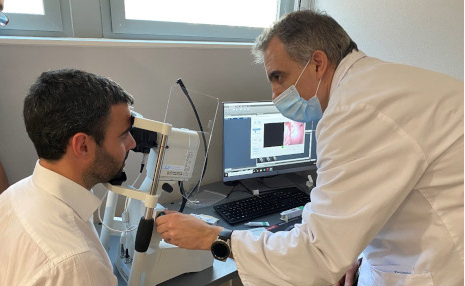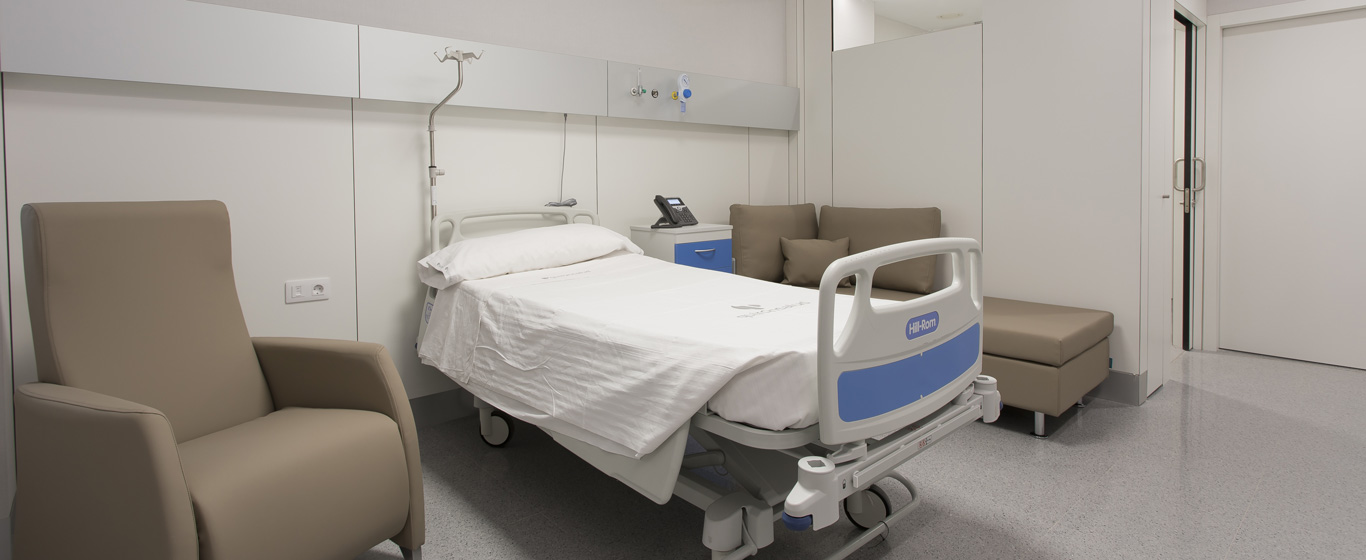What is the pain unit?
The pain unit focuses on studying, preventing, and alleviating pain, which can be chronic, acute, or temporarily occur after surgery. Since each person perceives pain very differently, professionals in this medical field apply various techniques to offer the most personalized treatment possible.
Research and technological advancements are key to providing increasingly specific treatments for each type of pain. Laboratory work is, therefore, a very important aspect of the daily routine for these specialists.
What does the pain unit study?
The professionals working in this unit focus on studying the causes and origins of pain, as well as the different ways to alleviate it in order to improve patients' quality of life. The approach is carried out from two distinct perspectives:
- Chronic pain: focuses on relieving discomfort and, if possible, completely eliminating the pain. This often involves combining medication with minimally invasive treatments.
- Oncological pain: often grouped within the previous category, this subspecialty treats patients suffering from cancer or the consequences of its treatment. In terminal cases, techniques are used to block pain while maintaining consciousness.
- Acute pain: addresses pain that arises suddenly and from the side effects of surgical interventions. Its main goal is to minimize the use of painkillers.
Who is the pain unit aimed at?
The pain unit focuses on treating individuals who suffer from constant pain in any part of the body, those undergoing cancer treatment, those experiencing acute pain intermittently, those who have recently undergone surgery, or those in their final days of life.
Techniques, procedures, and diagnostic methods
To avoid over-relying on pharmacological treatment, as many patients are already taking various medications, different techniques are used to alleviate pain in a minimally invasive manner. Some of the most commonly used procedures in this unit include:
- Infiltrations: medication is injected directly into the area where the pain is felt, providing faster relief. This is particularly indicated for muscles and joints.
- Epidural anesthesia: a blocking procedure that, in addition to being used in childbirth and surgeries, is employed to manage chronic and acute pain thanks to its analgesic and anti-inflammatory properties.
- Radiofrequency: involves generating heat in the affected tissues to treat pain in a controlled manner. Currently, treatments using both conventional and pulsed radiofrequency are applied.
- Ozone therapy: a fine needle is used to inject ozone into the damaged area. This regulates cytokines, regenerates tissues, improves oxygen perfusion, reduces inflammation, and minimizes pain.
Diseases and symptoms
Main pathologies and diseases
The pain unit treats patients with various diseases, including:
- Fibromyalgia
- Osteoarthritis
- Sciatica
- Low back pain
- Trigeminal neuralgia
- Muscle contracture
- Cervicalgia (neck pain)
- Neuropathic pain
- Dorsalgia
- Radiculopathies
- Spinal stenosis
Related symptoms
The main symptom treated in this unit is pain, which, as mentioned earlier, can be of various types:
About the consultation at the pain unit
We solve any doubts you may have before you see the specialist
It is most common for patients suffering from pain to be referred to this unit by a specialist in the affected area.
What should you consider?
Each person perceives pain differently, so the doctor dedicates the first consultation to discussing with the patient and determining both the origin of the discomfort and the degree of distress they are experiencing. Once the medical and family history is taken, a physical examination is performed, reports from other specialists are reviewed, and complementary tests are requested to determine the most appropriate treatment for each case.
What should I bring to the consultation?
To provide the specialist with the most comprehensive information, it is recommended to bring a detailed list of the pain’s progression and the pathologies or surgeries that triggered it. Additionally, the results of tests conducted by other doctors are very helpful.

If you have any further questions, please contact us through the Patient Services telephone number: 900 301 013













































































